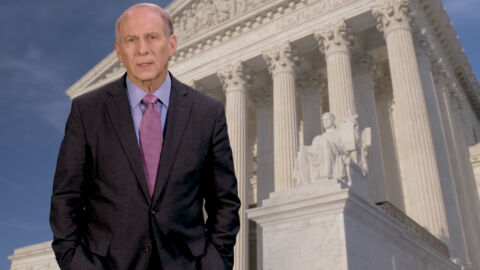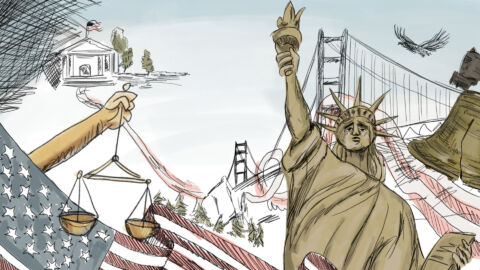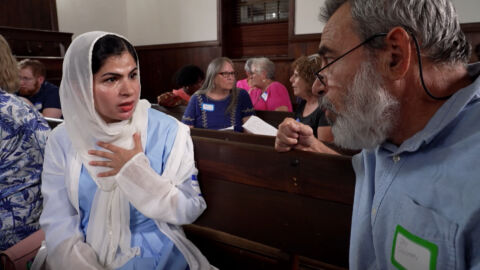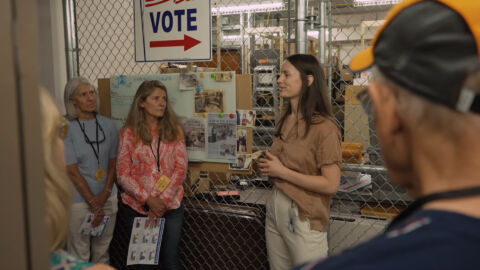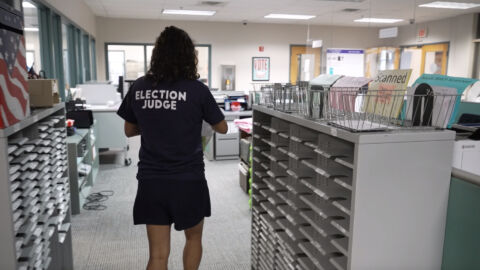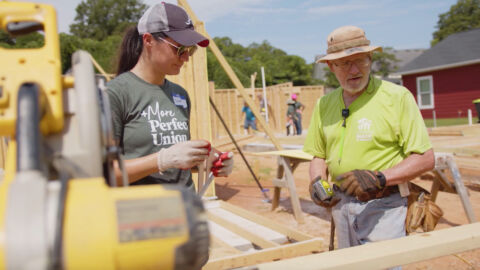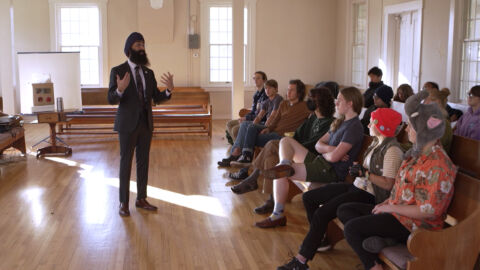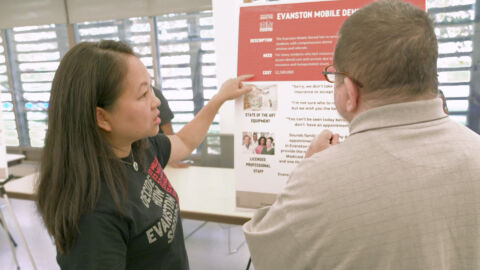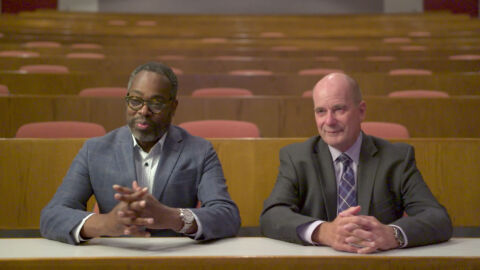Being informed is a critical part of being an engaged citizen. Trusted sources of information are more important than ever, as they are key in helping citizens make informed decisions when it comes to discerning between, supporting and voting for people and policies that shape their lives.
Access to accurate information is more widely available now than ever before in history. But it’s also easier today, with so much content at our fingertips, to be influenced by misinformation, disinformation, and to give in to populist trends. An uninformed informed citizenry can be a serious threat to our democracy.
A watchdog free press, also known as the Fourth Estate, is an essential piece of a healthy democracy. But in 2024, many Americans disagree about where to access it and what news is accurate: only 32% of Americans report having a “great deal” or “a fair amount” of trust in the media.
Cue Joy Mayer, Founder and Director of the nonprofit project, Trusting News. Since 2016, the group has been equipping newsrooms with resources and training opportunities to earn trust and boost credibility among readers and viewers. Mayer and her colleagues work with groups all over the country, including the Community News Collaborative in Sarasota, FL and the Oklahoma Media Center, a consortium of news organizations in Oklahoma City, OK. The trainings that Trusting News and their partners provide help journalists listen to the community members that they serve, to better understand how news reporting is perceived and what can be done to build transparency and trust.
According to the book, “The Bill of Obligations: Ten Habits of Good Citizens,” by author and diplomat Richard Haass, being informed is an essential part of being a good citizen. It is also a special responsibility of those in power to do their part to uphold this obligation to spread truth. Haass writes:
“When it comes to our obligation to be informed, those in the position to influence the views of others have a special responsibility to get their facts right and to distinguish carefully among facts, assessments, predictions, and recommendations. This applied to teachers at every level, to those who give sermons in places of worship, to journalists and those in every type of media, and above all to those in government be they elected or appointed, who possess not just influence but power.”
This is episode 1 in the 11-part digital series, A Citizen’s Guide to Preserving Democracy, a production of The WNET Group’s Preserving Democracy multiplatform initiative. The series is based on the book, “The Bill of Obligations: Ten Habits of Good Citizens,” by author and diplomat Richard Haass.

